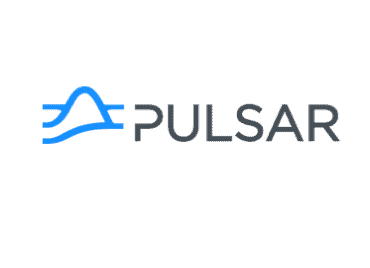
In this week’s real-time analytics news: NVIDIA announced the general availability of NVIDIA AI Enterprise 2.1, its end-to-end AI and data analytics software suite.
Keeping pace with news and developments in the real-time analytics market can be a daunting task. Fortunately, we have you covered with a summary of the items our staff comes across each week. And if you prefer it in your inbox, sign up here!
NVIDIA announced the general availability of NVIDIA AI Enterprise 2.1. This latest version of the end-to-end AI and data analytics software suite is optimized, certified, and supported for enterprises to deploy and scale AI applications across bare metal, virtual, container, and cloud environments. Some of the key points of the announcement include:
- The NVIDIA AI Enterprise 2.1 release offers advanced data science with the latest NVIDIA RAPIDS and low code AI model development using the most recent release of the NVIDIA TAO Toolkit.
- Making enterprise AI even more accessible across hybrid or multi-cloud environments, AI Enterprise 2.1 includes added support for Red Hat OpenShift running in the public cloud and the new Microsoft Azure NVads A10 v5 series. These are the first NVIDIA virtual GPU instances offered from the public cloud, which enables affordable GPU sharing.
Support for the latest AI frameworks, including:
- NVIDIA TAO Toolkit 22.05, where the latest version of the TAO Toolkit is now supported through NVIDIA AI Enterprise, with new key features including REST APIs integration, pre-trained weights import, TensorBoard integration, and new pre-trained models.
- NVIDIA RAPIDS 22.04, which provides more support for data workflows through the addition of new models, techniques, and data processing capabilities across all the NVIDIA data science libraries.
- Red Hat OpenShift, which is now certified and supported for the public cloud with NVIDIA AI Enterprise, in addition to bare metal and VMware vSphere-based deployments.
- The Azure NVads A10 v5 series, powered by NVIDIA A10 Tensor Core GPUs, offers unprecedented GPU scalability and affordability with fractional GPU sharing for flexible GPU sizes ranging from one-sixth of an A10 GPU to two full A10 GPUs.
Webinar: IBM MQ What’s New: Innovation and evolution [Register Now]
Azion announced a new global marketplace, which is an extensive catalog of integrated partner solutions for the company’s platform. The marketplace simplifies access to a global edge network, enabling ISVs, open-source communities, and software developers to provide their solutions through the Azion Edge Platform, which is used by thousands of companies worldwide. The new marketplace includes solutions like:
- A bot management solution from Radware and cybersecurity software from DataDome to protect applications and APIs from attacks.
- A distributed database from Fauna to help companies build applications faster, scale with confidence, and worry less about operations.
- Fraud detection from IPQS, Axur, and Saffe, which provide real-time detection and data enrichment for a complete view of malicious users.
- Open-source libraries to add A/B testing, authentication & authorization, fraud protection, and more.
Acceldata announced that it will offer an alternative option for legacy Hortonworks Data Platform (HDP) / Cloudera Data Hub (CDH) customers. Cloudera has announced that it plans to suspend support for HDP/CDH on Sept. 30, 2022. This move will require legacy customers to upgrade in order to receive continued support from Cloudera. In light of that news, Acceldata offers a flexible and highly optimized software and support solution that gives customers options to remain on-premises or migrate to cloud data platforms of their choice.
Tresata announced the commercial launch of its Digital Business Platform (DBP), a software system that simplifies the ability to use their data. DBP was designed to deliver usable data that can effectively power digital transformations. It comes with pre-built integrations to internal data warehouses, data mesh architectures, external data sources, and transactional and analytics systems. The platform leverages advanced semantic data integration to make data collected across business systems instantly usable and relatable, freeing the data from its limitations to provide immediate business value.
Real-time analytics news in brief
Expert.ai announced new features to its natural language (NL) platform, enabling applications to be put into production faster, with high accuracy, and at scale. New capabilities include enhanced active learning to further improve data labeling; pre-trained knowledge models to both accelerate the delivery of NL applications as well as proactively select and quickly validate the desired outputs; and expanded extraction functionalities based on auto-generation rules for extraction.
BigID announced security and privacy-aware access control for AWS Cloud infrastructure, reducing risk and automating role-based policies across AWS, including S3, Redshift, Athena, EMR, and more, with extended integrations with AWS Lake Formation & AWS Glue. By using BigID, AWS customers can automate intelligent access control to enable and restrict access to their sensitive data – while creating business policies based on data sensitivity and context.
Imperva announced that its Imperva Data Security Fabric (DSF) now provides data-centric protection and compliance for enterprise data lakes built on Amazon Web Services (AWS). Imperva reinforces its commitment to securing data and all paths to it by allowing AWS customers to secure their data with one comprehensive platform, leveraging a unified security model across Amazon Aurora, Amazon Redshift, Amazon Relational Database Service (Amazon RDS), Amazon DynamoDB, Amazon Athena, and AWS CloudFormation without requiring any changes to their existing data infrastructure.
Fiddler announced improvements to its MPM platform, including model ingestion at giga-scale, natural language processing (NLP) and computer vision (CV) monitoring, class imbalance, and an intuitive and streamlined user experience. With these new features, the Fiddler MPM platform delivers a deeper understanding of unstructured model behavior and performance, and enhanced scalability, discoverability of rare and nuanced model drifts, and ease of use.
Webinar: IBM MQ What’s New: Innovation and evolution [Register Now]
Digitate announced that it has achieved both HIPAA and GDPR compliance, guaranteeing that its artificial intelligence for IT operations (AIOps) platform meets all regulatory standards for security, availability, processing integrity, confidentiality, and privacy. Achieving HIPAA and GDPR compliance for its portfolio of products highlights the breadth of security measures in place to deliver advanced solutions that meet the rigorous global data protection regulations and maintain strong cloud security.
Provectus released the v0.6 update of the first Open-Source Data Discovery (ODD) and Observability Platform. In addition to new features for data and ML Engineers, the update includes a number of improvements for business users in BI and data analytics departments that are designed to increase the trustworthiness and reliability of data. The ODD Platform v0.6 was enhanced, offering improvements including SLA indicator, activity feed, data entity usage report, session storage type selection, and alert notifications.
JFrog announced its DevSecOps tool, JFrog Xray, now supports Amazon Web Services (AWS) Security Hub, a cloud security posture management service that performs best practice checks, aggregates alerts, and allows automated remediation. JFrog, already part of the DevSecOps category under the AWS DevOps competency, also revealed it is participating in the new AWS Marketplace Vendor Insights, which helps streamline the complex third-party software risk assessment process by enabling JFrog to make security and compliance information available to customers through AWS Marketplace.
Xfuse announced it will use its proprietary high-performance Image Signal Processing (ISP) technology to develop the next generation of artificial intelligence vision technologies. The Xfuse technology supports multiple different sensor types simultaneously to fuse data-rich HDR video in real-time with minimal latency. The location-aware data streaming technologies from the Xfuse Phoenix HDR ISP offer both in-house and independent engineers’ complete control over the critical imaging pipeline necessary to rapidly advance self-aware robotics, autonomous guided vehicles, machine vision, and more.
UserTesting announced the availability of new test templates for the UserTesting Human Insight Platform that help companies take the risk out of the digital product development process, make smarter decisions earlier in the process, and drive results like increasing customer retention while reducing costs. With the new templates, product teams can identify and validate ideas, concepts, prototypes, and experiences before devoting precious development cycles and costs associated with sprint cycles and failed product launches.
Iterative launched the first machine learning model registry based on GitOps principles, Iterative Studio Model Registry. Unlike existing solutions that are separate from software development tools and often not updated with the latest model information, Iterative takes the workflows, and best practices of software development and applies them to model deployment, getting models into production faster. DevOps and MLOps teams collaborate by using the same tools and processes, so production-ready models being passed downstream to CI/CD systems are all fully automated and transparent to all teams.
Partnerships, collaborations, and more
Iguazio and Sense announced that the Iguazio MLOps platform will be used to power a wide range of AI products aimed at increasing the efficiency and scalability of Sense’s AI operations. Sense chose Iguazio to build a robust, automated, real-time NLP pipeline. The solution leverages the connectivity of Iguazio’s MLOps platform and built-in feature store with the Snowflake Data Cloud to speed up feature engineering, deep integration on Amazon Web Services (AWS) to manage cloud consumption costs, and smart scheduling capabilities for NVIDIA accelerated computing to manage GPU usage in an efficient and scalable way.
Knoema announced the acquisition of Seek Data, a cloud data and analytics consultancy across industries, including retail and consumer packaged goods (CPG). With the acquisition, Knoema will offer a suite of solutions that support business users on the front lines of sales and marketing, as well as the supply chain. Through this acquisition, Knoema will also look to a more integrated partnership with Snowflake by turning the Seek Data Retail and CPG Hub into a series of applications that will run natively on the Snowflake Data Cloud’s Native Apps framework.
Webinar: IBM MQ What’s New: Innovation and evolution [Register Now]
Datafold and Hightouch announced an integration to quickly provide data engineers with visibility into how dbt model changes impact activated data. The integration with Datafold ensures that whenever an upstream data model is modified within a schema or pipeline, the data engineer will be alerted to the impact to any Hightouch sync. This prevents every update from inadvertently breaking the sync or changing the data within a sync in an unexpected way.
Loft Labs announced a partnership with Docker so that Docker Desktop users can now set up and manage virtual Kubernetes clusters. Recently, Docker announced the launch of an extensions API (application programming interface) called Docker Extensions that enables partners to extend Docker Desktop capabilities with additional capabilities for developers. With this announcement, Loft introduces an extension for open source vcluster that makes it easy to create and manage virtual clusters in Docker Desktop.
If your company has real-time analytics news, send your announcements to ssalamone@rtinsights.com.
In case you missed it, here are our most recent previous weekly real-time analytics news roundups:





























